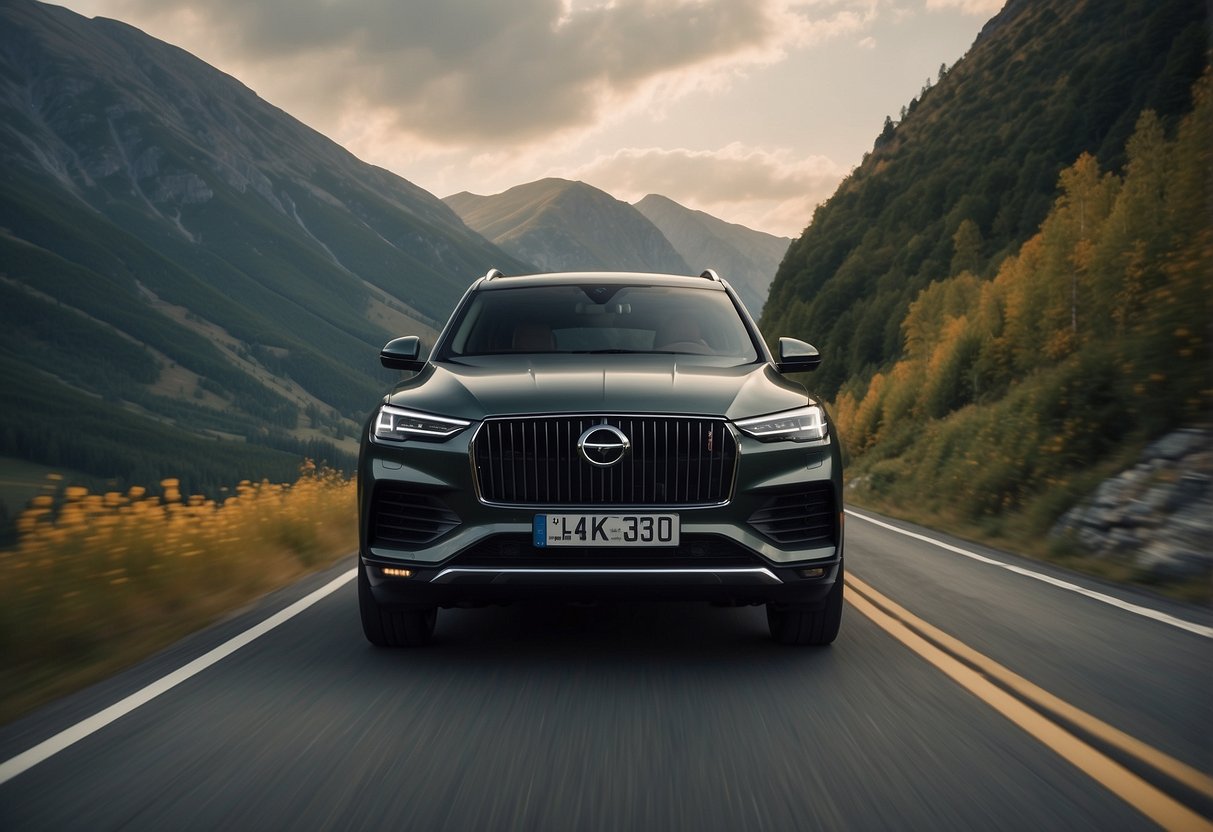
Luxury SUV Categories
Luxury SUVs now cater to various consumer needs, balancing between two primary segments and evolving crossover designs. Each category offers a distinct mix of performance, comfort, and practicality.
Compact vs Full-Size Segmentation
Compact and full-size luxury SUVs serve very different purposes. Compact luxury SUVs, including luxury subcompact models, often prioritize urban maneuverability and efficient use of space. These are ideal for city dwellers who seek a luxury vehicle with capable driving dynamics and premium features.
Full-size luxury SUVs, on the other hand, focus on providing expansive interiors, powerful engines, and advanced off-road capabilities. These vehicles are perfect for long-distance travel and family outings, offering ample cargo space and multiple rows of seating.
Midsize luxury SUVs fit in between, offering a balance that appeals to a wide range of buyers looking for both performance and comfort without the bulk of a full-size SUV.
Crossing Over: The Rise of the Crossover
Crossovers have reshaped the luxury SUV landscape. Blending characteristics from both SUVs and traditional cars, these vehicles offer a versatile option for consumers. Crossovers often feature a unibody construction, enhancing ride quality and fuel efficiency while maintaining higher ground clearance and spacious interiors.
Luxury crossovers cater to those who desire a blend of practicality and premium features. They provide a comfortable ride, state-of-the-art technology, and sophisticated design elements. Models range from subcompact to full-size, offering diverse choices that meet varied lifestyle needs.
As a result, crossovers have become immensely popular, reflecting a shift in consumer preferences toward vehicles that don’t compromise on comfort, performance, or everyday usability.
Market Trends and Consumer Preferences
As the demand for luxury SUVs grows, manufacturers are integrating advanced technology and practical features to meet evolving consumer preferences. A significant focus is on hybrid and electric models and achieving a balance between luxury and daily utility.
Emergence of the Hybrid and Electric SUV
The rise of hybrid and electric SUVs marks a major shift in the automotive market. Consumers are increasingly prioritizing fuel efficiency without compromising on luxury. Hybrid models offer a blend of traditional and electric power, appealing to those looking to reduce their carbon footprint.
All-electric SUVs provide a sustainable option with benefits such as reduced emissions and lower operating costs. Plug-in hybrids offer the flexibility of running on electric power for short trips, with a gasoline engine for longer journeys. This versatility enhances practicality, making these vehicles suitable for various lifestyle needs.
Balancing Luxury and Practicality
Modern luxury SUVs aim to offer a harmonious balance between high-end features and practical utility. Consumers expect advanced entertainment systems, premium materials, and spacious interiors without sacrificing everyday usability.
Manufacturers are responding by designing vehicles that combine comfort with functional elements like ample cargo space and advanced safety features. This trend emphasizes the importance of value, as buyers seek vehicles that deliver both opulence and functional benefits. Practicality is no longer a trade-off for luxury; it is an integral part of the overall package.
Sustainability and Efficiency
Luxury SUVs are now combining high-end comfort with environmentally-friendly technologies. These advancements in fuel economy and integrating green technologies are pivotal.
Adoption of Green Technologies
Car manufacturers are embracing green technologies through hybrid and electric models. These vehicles use electric motors for reduced emissions and quieter rides. Plug-in hybrids (PHEVs) combine a traditional engine with a rechargeable battery, allowing for short electric-only trips.
Electric SUVs have become viable with better range and faster charging capabilities. Improvements in battery efficiency ensure longer distances between recharges. More charging stations are being built, making electric SUVs more practical for daily use and long journeys.
Fuel Economy in Luxury Models
Fuel economy is a key consideration for luxury SUVs. Hybrid models show significant improvements in mileage over traditional engines. Combining electric motors with fuel engines reduces overall fuel consumption.
Advanced technologies like start-stop systems and regenerative braking further increase efficiency. Automatic start-stop turns off the engine when idling, while regenerative braking converts kinetic energy into electrical energy to recharge the battery. These features help to make luxury SUVs not just comfortable and powerful, but also more sustainable and cost-effective.



